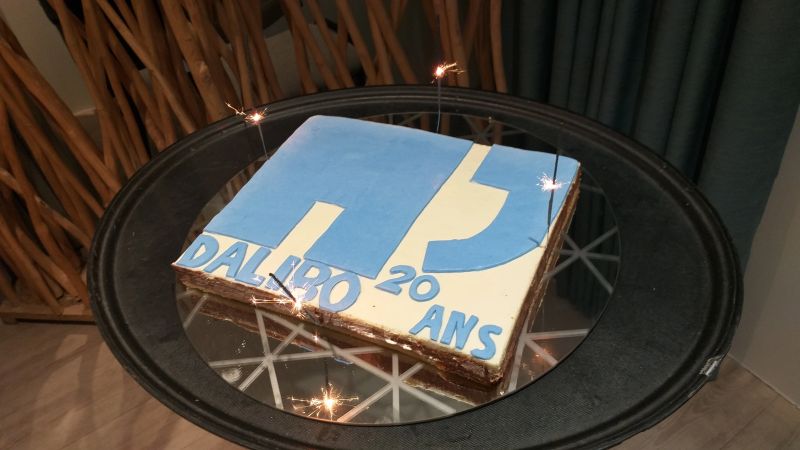The cooperative company DALIBO is celebrating its 20th anniversary today, giving me an opportunity to reflect on the reasons behind the success of this collective adventure.

Speaking of DALIBO’s success means first speaking of the PostgreSQL community’s success. When we created the company in 2005 with Jean-Paul Argudo, Dimitri Fontaine and Alexandre Baron, PostgreSQL was a marginal, confidential and unattractive project. Two decades later, it has become the dominant database: an obvious choice, a consensus among most developers, administrators and decision-makers…
So today I could easily tell you the fable of a visionary company, a pioneer that knew before everyone else that Postgres would devour everything in its path… But the truth is that we were lucky to board the right train at the right time :-)
In 2005, even though I had the intuition that this Postgres train would take us far, it was difficult to imagine that the journey would lead us to the very top of the database market… At that time, Oracle was probably the most powerful IT company in the world, Microsoft SQL Server had its own unwavering user base, MySQL was the rising star among web developers and the NoSQL hype was about to begin…
On paper, PostgreSQL seemed to be the ugly duckling of the group: no flashy interface for developers, no outstanding benchmarks, no bombastic press releases…
But in hindsight, the main ingredient for success was already there: an open, decentralized and self-managed community.
When I participated in creating DALIBO, I clearly remember how warm and stimulating the community’s welcome was: people like Bruce Momjian, Simon Riggs and many others supported, encouraged and inspired us.
Because what is so unique about the Postgres community is the sense of community that runs through it.
What I mean by “sense of community” is the ability for individuals to perceive, understand and value what unites them within the same collective. When people manage to grasp together a common objective, shared values, they transcend the simple sum of individual particularisms and produce a powerful and creative form of social intelligence. A social intelligence that can compete with multinationals and produce free software of better quality than all commercial alternatives.
Conversely, “common sense” is often just an aggregate of opinions and pseudo-truths shared widely but rarely discussed. For example, in 2005, common sense told us that it was impossible to create a company dedicated to developing free, open source software ;-)
And it is thanks to this sense of community that Postgres has slowly but surely revolutionized the database sector and enabled many companies to prosper… Among these companies is DALIBO, which has stood for 20 years on the shoulders of thousands of contributors from the Postgres community.
I would like to take advantage of this blog post to express my gratitude to all the people who have and will participate in this immense collective adventure, regardless of the nature of their contribution and their level of involvement. You have all indirectly participated in DALIBO’s success and structuring.
Because DALIBO has not merely profited from the riches of the Postgres community, we have over the years built a social model inspired by the spirit of that community. By becoming a cooperative company in 2011 and establishing strong collective principles such as equal profit sharing, salary transparency or the election of our leaders, we have always sought to stimulate and perpetuate this sense of community that has taken us so far together…
Today DALIBO is the only cooperative company among the major sponsors of the PostgreSQL project. Of course, our social model may seem marginal, confidential and unattractive. The current common sense seems to tell us that technical innovation is only possible through fundraising, disruptive startups and acquisitions worth hundreds of millions of dollars… All these forms emerging from modern capitalism seem like an insurmountable horizon but who knows? Perhaps in 20 years, the sense of community will transcend not simply the IT sector but also companies themselves and we will see together the emergence of more democratic, transparent forms of work organization that will be more respectful of individuals and the environment!
PS: This article was translated with the assistance of an artificial intelligence. The original version in French is available here.
blog comments powered by Disqus